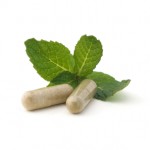I'm in the gym at least six times a week when we're in town and I've noticed the establishment sells very large containers of protein powders and other muscle building supplements. Well, unlike some of the young men who are constantly working on free weights building up their upper body musculature, I spend at least an hour on a recumbent bike and then do stretches and five machines at moderate weights. What I don't do is lift free weights or gulp down large quantities of strange looking liquids that supposedly help to make you look like Charles Atlas or some Olympic weight lifter.
But both The Redbook article I mentioned in my last post and the Tufts Health&Nutrition Letter (sic) I got in the mail and eventually subscribed to mentioned other supplements in some detail. Redbook, after discussing four newish diet pills and their pros and cons, moved on to "natural" weight-loss pills, powders and liquids. They quoted studies and experts from Harvard and UC San Diego and referred readers to WebMD.com, which appears to be a reasonable public-access website for medical information (though it also carries lots of advertisements).
One caution from Dr. Michael Steelman (I Googled him and he's the only weight loss specialist to receive the national society's Bariatrician of the Year award twice and is now the editor of a peer review journal in the field) is that "Dietary-supplement companies aren't required to show clinical data on the safety and efficacy to the FDA, which means we have no idea whether they work or if they're safe."
The Tufts article mentions a "voluntary recall" in 2009 of 14 diet-aid products sold as Hydrocut. This is a combination of several active components including caffeine and green tea plus at least three other ingredients. When I traced the history of the product I found the manufacturer had been reported by the New York Times in 2003 as burying studies showing it was ineffective and covering up evidence of cardiac side effects.
Later on there were 23 reports of major side effects with one person ending up with a liver transplant (and at least 17 cases of liver damage reported in the American Journal of Gastroenterology).
Yet when I Googled the drug I found ads for it online today. The company just reformulated the product and put it back on the market.
I went back to the Redbook which next mentioned bitter orange extract. I found university physician comments and reviews saying it doesn't help dieters lose weight and has significant side effects. But you can find lots of ads for the drug.
The only two substances that may be effective and reasonably safe are green tea extract and CLA, conjugated linoleic acid (found in dairy products). But a Harvard medical school obesity specialist recommends that the best way to use them for weight loss is to drink some green tea and some skim milk, not to buy the unregulated and often costly supplements you can find advertised online or in magazines.
"Caveat emptor," the Romans used to say; let the buyer beware.


